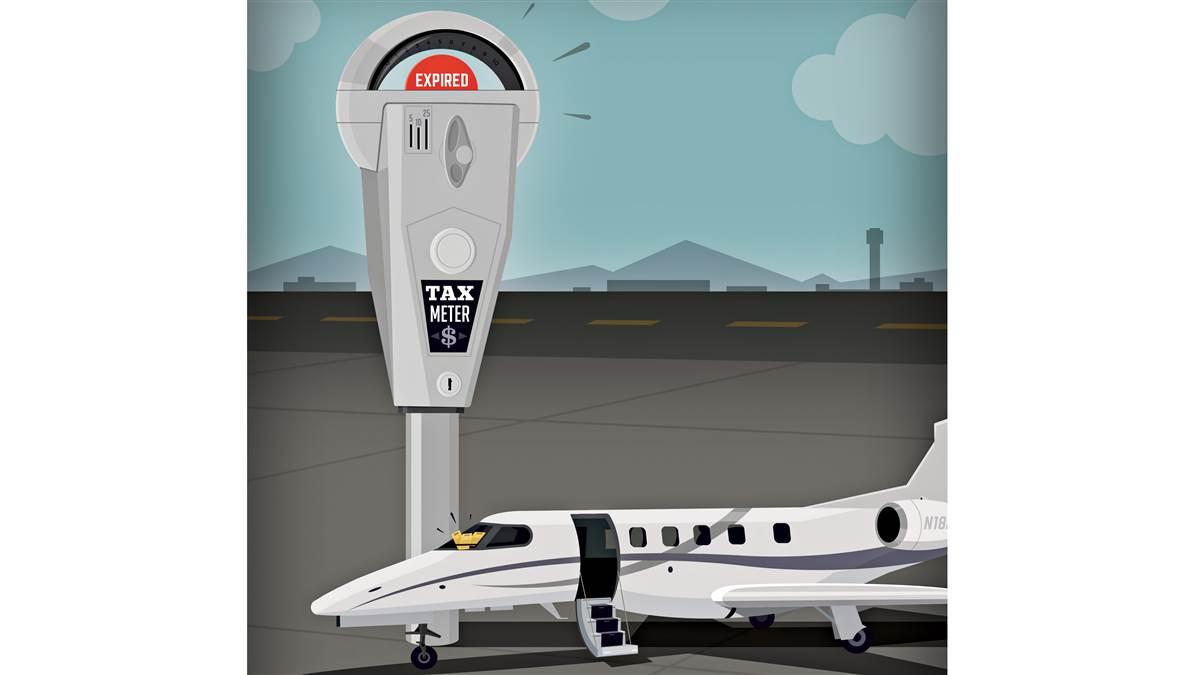Beware the 'gotcha' states
Why you’ll regret parking your airplane too long in the wrong state
By Nel Stubbs
I bet you are wondering what could possibly be called a “gotcha state.”

For purposes of this article, a “gotcha state” is a state that may subject an aircraft to a tax even though the aircraft is registered and paying all the appropriate taxes to the state where it is predominately hangared and maintained. This can be huge concern to aircraft owners and pilots, as it is sometimes difficult to understand which states may tax their aircraft.
Some states are more aggressive than others, and other states are becoming aggressive in collecting taxes and fees. Pilots and aircraft owners should keep an eye on their state legislatures, and become active in the changing of tax laws as they relate to aircraft. Here are some states that fall into this category.
ARIZONA.If the owner of an aircraft is not a resident of Arizona, but brings an aircraft into Arizona for more than 90 days in a calendar year—but less than 210 days—the aircraft is subject to an aircraft license tax of 0.1 percent of the average fair market value. However, if it is found that the owner is either a resident or the aircraft is in the state more than 210 days, the owner will owe the 0.5-percent aircraft license tax.
CALIFORNIA. The California State Board of Equalization (SBE) is extremely aggressive. It is not a question of if the aircraft owner will receive a letter, but when. If an aircraft spends any significant time in California, there is the likelihood of correspondence from the SBE. In addition, aircraft operated under FAR 91 Subpart K, Fractional Ownership, and Part 135 are subject to property tax based on the amount of time the aircraft spends in the state.
FLORIDA. Aircraft owned by a nonresident are exempt from the use tax imposed under chapter 212 of the Florida statute if the aircraft enters and remains in this state for less than a total of 21 days during the six-month period after the date of purchase.
Some states are more aggressive than others, and other states are becoming aggressive in collecting taxes and fees. Pilots and aircraft owners should keep an eye on their state legislatures.ILLINOIS. Although there are a number of ways to reduce the application of the Illinois sales and use taxes, Illinois also has an aircraft use tax that is imposed on aircraft that may override any exemptions.
INDIANA. Any nonresident who bases an aircraft in the state for more than 60 days must register the aircraft with the state department of aviation. If the aircraft is in the state with a dealer or repair station for repair, remodel, or refurbishment, neither the nonresident nor the dealer or repair station is required to register the aircraft.
IOWA.Aircraft are required to be registered if they are operated or otherwise controlled with the state for a period of more than 30 days. Not only could this subject the aircraft owner to the aircraft registration fee, but also the state aircraft use tax.
KENTUCKY. The commonwealth of Kentucky will subject any commercial aircraft that come into the state to its property tax, based on the amount of time the aircraft spends in the state.
MINNESOTA. Any aircraft owned by a nonresident of this state and transiently or temporarily using the airspace overlying this state, or the airports therein, are exempt from taxation unless the aircraft uses the airspace overlying the state or the airports therein for more than 60 days in the tax period. The operation of an aircraft in the airspace overlying the state or the use of airports within this state for any purpose at any time during one day will be considered as use for one complete day.
MISSOURI. There is exposure for property taxation unless the aircraft owner can prove that he or she does not have sufficient flying activity in the state. This is because Missouri defines a commercial aircraft as any aircraft that weighs more than 3,000 pounds, and all commercial aircraft are taxed based on the amount of time the aircraft spends in—and over—the state.
NEVADA. Nevada has implemented a program to determine if residents are evading sales and use taxes by registering property in a state or jurisdiction that either does not levy a sales/use tax or does so at a lower rate than Nevada’s. If the state determines that a Nevada resident is attempting to evade the tax, a 10-percent penalty on the amount owed, plus 1 percent interest per month the tax is not paid, could be assessed. In some cases the penalty could be as high at 300 percent.
VIRGINIA. Aircraft that are owned by nonresidents and are based in Virginia more than 60 days in any 12-month period are required to be licensed in the commonwealth. In addition, before any aircraft can be licensed by the state department of aviation, the owner of the aircraft must have satisfied the 2-percent aircraft sales and use tax imposed by the Virginia Department of Taxation.
WASHINGTON. Aircraft owned by nonresidents—if the aircraft is in the state for less than 90 days—are exempt from registration. In addition, if an aircraft qualifies as being operated by a public utility company, the company operating the aircraft could be subject to additional taxation.
Nel Stubbs is the vice president and co-owner of the aviation consulting firm Conklin & de Decker.


